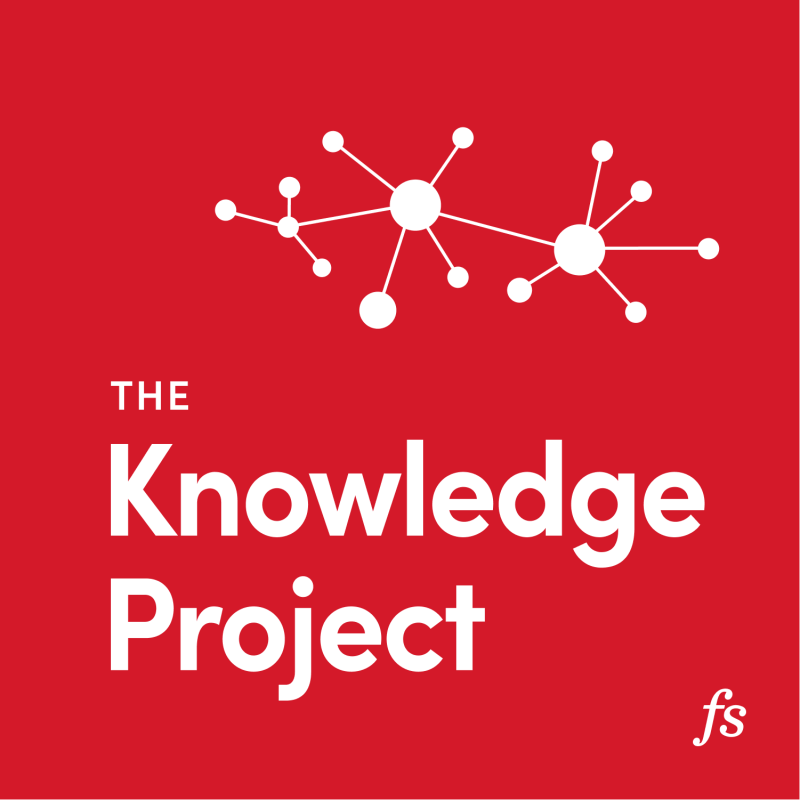Speaker, author, and radio journalist Celeste Headlee has had decades of experience fine tuning the recipe for engaging and rewarding conversation. She shares some tips to help us instantly improve our conversational skills and meaningfully connect with others.
Now available on: Apple Podcasts | Spotify | Transcript
On today’s episode of The Knowledge Project, I welcome Celeste Headlee (@CelesteHeadlee). Celeste is a professional opera singer, award winning radio journalist, public speaker (her TED talk has over 16 million views) and author of the bestselling book, We Need to Talk: How to Have Conversations That Matter.
In a society where more and more of our communication with one another is done electronically, Celeste’s book is a timely and welcome nudge for more face to face interaction. Backed by research, Celeste makes the case that our relationships, our happiness, and even our health depend on it.
In this interview, Celeste shares a number of ways anybody can improve their communication skills immediately, what the three levels of effective listening are, and identifies the fatal faux pas that will suck the wind out of any conversation (I commit multiple in the span of a few minutes.)
If you want to raise your communication game and learn how to better connect with the people in your life, don’t miss this episode.
Here are a few highlights from our conversation:
The best model for a good conversation is a friendly game of catch. There’s a number of reasons for that. The most obvious is that in a game of catch you can’t throw more than you catch. It’s a perfectly even balance between throwing and catching, just as a conversation should be an even balance between talking and listening.
Human beings are by nature tribal. We already have a tendency to split into tribes. They have found over decades of research that it doesn’t take very long of two perfect strangers sitting in a room together, for them to become a common tribe. Our need to belong exceeds our need to be moral. They have been able to convince people to break the law and steal, after say, a 10-or 15-minute period of time spent with a stranger. That’s how quickly we form these tribes.
A story is like a shark, it has to keep moving forward or it dies. Or you can imagine it as a trapeze, where you have to provide that next rung for the listener. There can’t be any gaps or they fall.
Your digital persona is not as nice as you are. It’s just not. You’re a bigger jerk in the digital space than anywhere else. We already have a tendency to want to surround ourselves with people who agree with us, with people who belong. And then we have this tech that’s with us constantly, that allows us to do that to an unprecedented extent, it’s kind of a recipe for disaster.
Diversity, and in this case I meant cognitive diversity, is extremely good for us. It’s when human beings do their best thinking. Agreement is not a great goal if what you’re trying to do is be innovative or creative in your problem-solving. Cognitive diversity is extremely helpful. That’s when you’ll get your best ideas, that’s when you will come up with the best plans. But we don’t enjoy it. It’s not comfortable.
You’re not gonna surprise yourself by something that comes out of your mouth. You already know it all. So, if you get surprising information that means you’ve heard it from someone else, and so therefore, if you’ve learned something from someone—that’s the bare minimum of listening, is to at least learn something from them.
To listen well, it’s not just enough to hear what they’re saying, but to consider it. That’s something that we rarely do. You know, we get just a few seconds into a conversation before we begin trying to decide whether we agree with that person or not. We’re listening not to actually absorb what they’re saying, but to evaluate it. Evaluate if we agree, evaluate if they’re right.
You have these three layers of listening. There’s the evaluative listening, where you’re just deciding whether that person’s right or wrong, what they’re saying is true or false. Then there’s interpretive, where you’re trying to understand, and then there’s transformative where you could be changed by the conversation.
One of the best ways to create that understanding and that empathic bond is to hear someone’s voice. In other words, human beings are such sophisticated communicators — there is so much information being transmitted just through the sound of somebody’s voice — that it is the voice itself, the sound of the voice, that allows me to recognize you as a human being, and part of my tribe.

